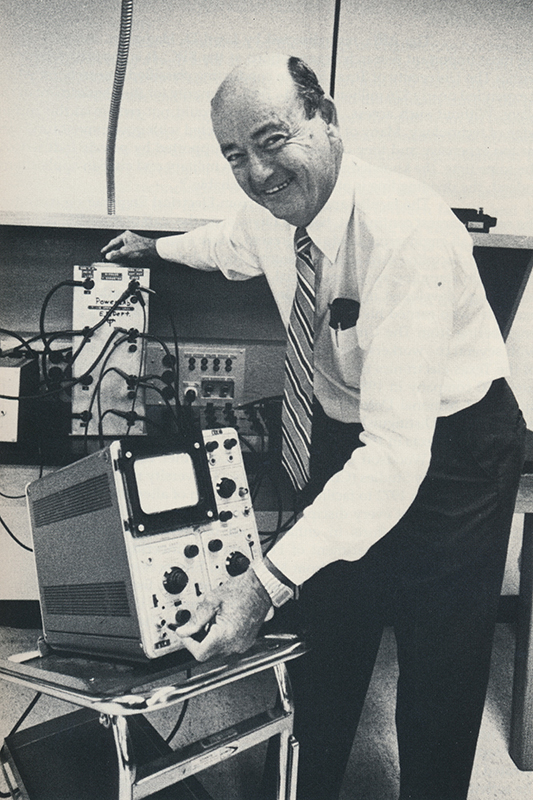Herbert H. Woodson, former dean of The University of Texas at Austin’s College of Engineering (now the Cockrell School of Engineering), died on Nov. 30 at the age of 93, leaving behind a legacy of progress and strong leadership in the Texas Engineering community.

After graduating from high school in Lubbock, Texas, Woodson enlisted in the U.S. Navy, where he served during World War II. After his honorable discharge, he enrolled in the Massachusetts Institute of Technology where he received Bachelor of Science and Master of Science degrees in electrical engineering in 1952, and a Ph.D. in electrical engineering in 1956. He served on faculty at MIT for 15 years before joining UT in 1971.
Woodson proved to be a tremendous leader after his arrival in Austin. He served as chair of the Department of Electrical Engineering from 1971 to 1981, director of the Center for Energy Studies from 1974 to 1988 and interim director of the Center for Fusion Engineering from 1982 to 1988. He served as acting dean of engineering from 1987 to 1988, after which he was appointed the college’s sixth dean. He was appointed dean emeritus on June 1, 2011.
During his distinguished career, Woodson represented the U.S. at the U.S.-USSR Joint Commission on Technological and Scientific Cooperation in 1972, and he was elected into the National Academy of Engineering in 1990. Highly esteemed among his peers and colleagues, he was a national leader in the field of electrical and computer engineering.
Perhaps more impressive than his career achievements, however, was his dedication to UT’s College of Engineering. Woodson created the Women in Engineering Program — a program that still exists in the Cockrell School — advocating to increase female enrollment and graduation in engineering. He recruited the best and brightest faculty members, many of whom are leaders in the Cockrell School today.
A man of great integrity, Woodson’s life spoke to the heart of engineering — using the tools, intellect and resources he had available to make the world a better place. His success can be seen in the success of those whose lives he touched. Generations of engineering students have been inspired to change the world through his teaching and mentorship, and his impact will continue to reach far into the decades to come.







